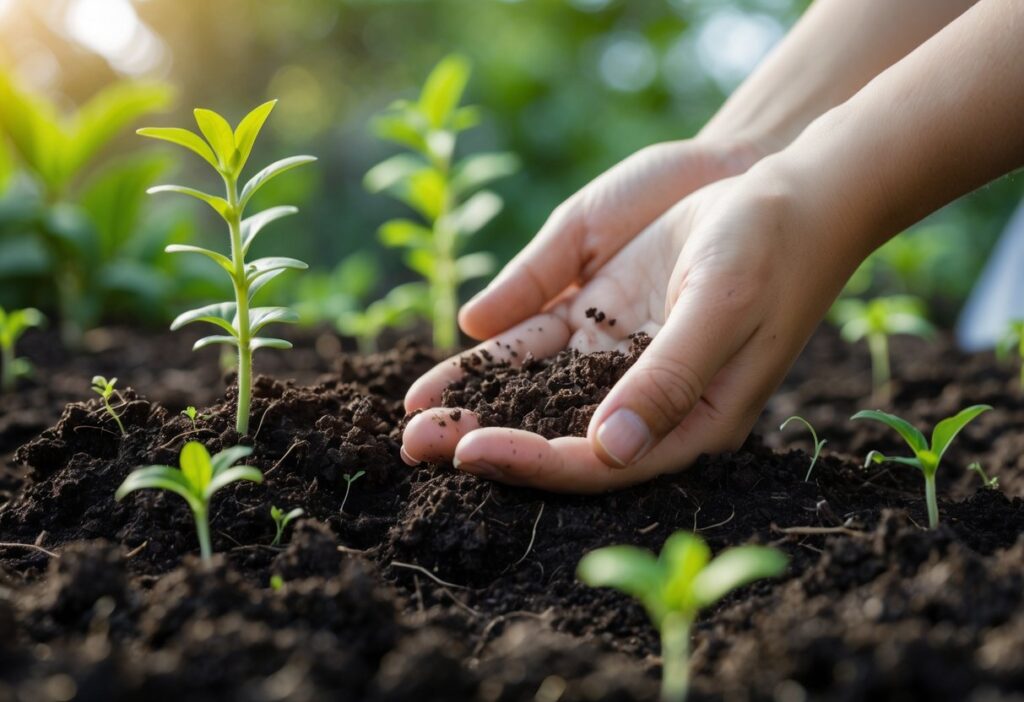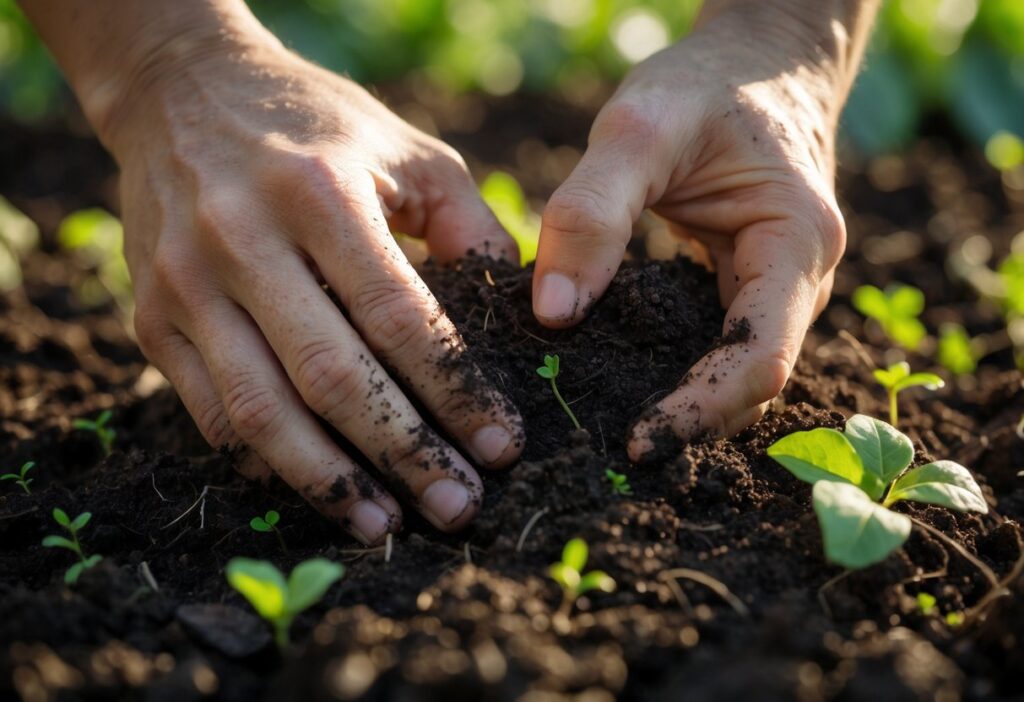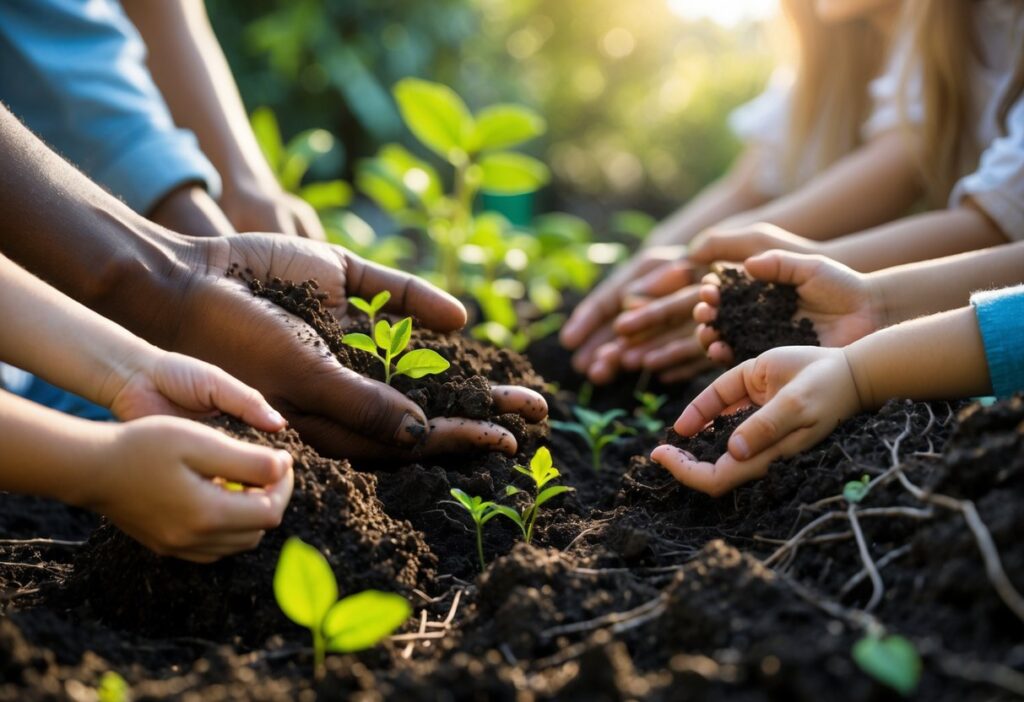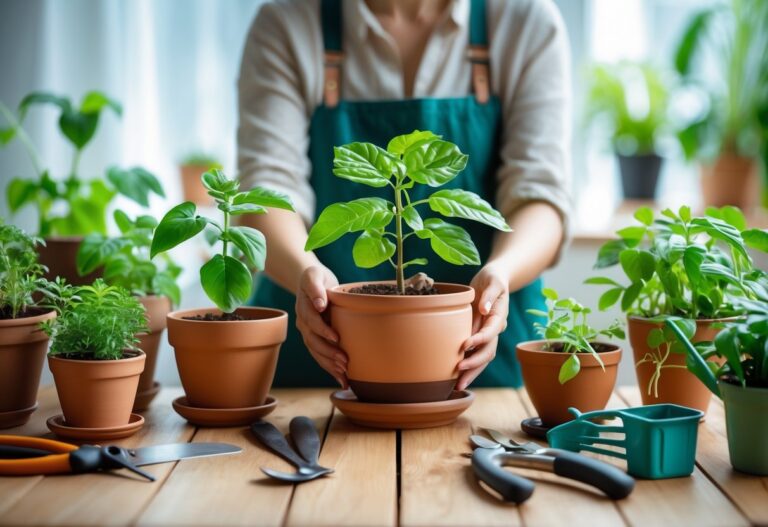Soil is more than just dirt beneath your feet. It is full of tiny microbes that can directly affect your health.
When you touch soil, you expose your body to helpful bacteria and nutrients that can strengthen your immune system and reduce inflammation.

These microbes help train your body’s defenses by boosting key proteins that control how inflammation works. This can make your immune system stronger and better at fighting off illness.
Whether you garden, play outside, or simply get your hands dirty, you tap into a natural way to support your health every day.
Understanding the connection between soil and your immune system explains why spending time outdoors feels good and can actually make you healthier.
It’s a simple, natural interaction with the world that has lasting benefits for your body.
The Science Behind Soil Contact and Immunity
Soil is full of tiny living things called microbes, which play a key role in keeping your immune system strong.
When you come into contact with soil, these microbes can interact with your body in specific ways, helping to regulate immune responses.
This connection also matters when it comes to conditions like allergies and asthma.
How Soil Microbes Interact With the Immune System
Soil contains millions of microbes such as bacteria and fungi. When you touch soil, these microbes can enter your body through your skin or even by breathing in dust.
This interaction helps train your immune system to respond properly to threats.
Your immune system has two parts: one that reacts quickly to any invader and one that learns and adapts over time.
Soil microbes stimulate both parts, supporting a strong defense. They help balance inflammation by increasing proteins called cytokines, which control immune activity.
By exposing yourself to diverse soil microbes, you encourage a healthy immune system that can better fight infections and avoid overreacting to harmless substances.
Hygiene Hypothesis and the Farm Effect
The hygiene hypothesis suggests that a very clean environment can limit exposure to important microbes, which might weaken your immune system.
This leads to higher rates of allergies, asthma, and autoimmune diseases.
Living or growing up near farms exposes you to a wide variety of soil microbes. This “farm effect” helps your immune system develop normally by increasing its microbial diversity.
Studies show that children raised on farms have fewer allergies and asthma problems.
Regular contact with soil and plants can mimic this effect. It encourages your body to build immune resilience by constantly encountering and adapting to different microbes.
Impact on Allergies and Asthma

Exposure to healthy soil microbes helps prevent immune overreactions that cause allergies and asthma.
When your immune system is well-trained by contact with soil, it is less likely to attack harmless substances like pollen or dust.
Research shows people who interact with soil regularly have lower rates of allergic diseases.
Soil microbes improve immune regulation, reducing inflammation in the lungs and airways.
Poor soil diversity caused by pollution or overuse can limit these benefits.
This shows how important it is for you to maintain regular, safe contact with natural soil to support your respiratory health.
Connecting With Nature: Practical Ways to Benefit From Dirt
Getting hands-on with soil is a direct way to tap into the health benefits dirt offers.
By spending time gardening or simply playing in the soil, you expose yourself to helpful microorganisms that can support your immune system.
You can bring these benefits into daily life, while also considering how healthy soil affects the environment.
Benefits of Gardening and Playing in the Dirt

When you garden or play in the dirt, you come into contact with a wide variety of microorganisms.
These tiny living things help boost your immune system by training it to respond better to harmful germs.
Gardening is more than planting seeds. It includes digging, weeding, and watering—activities that increase your exposure to soil microbes.
This interaction can reduce stress and improve mood, helping your mental health as well.
Playing in the dirt is especially good for children. It supports immune development and teaches patience and care for living things.
These activities offer a simple way to improve your physical and mental wellbeing without extra effort or cost.
Encouraging Healthy Soil Exposure in Daily Life
You don’t need a big garden to benefit from soil. Try small changes like planting herbs or flowers in pots on your windowsill, or spending time in parks and natural areas where healthy soil and plants thrive.
Touching natural dirt, grass, or plants during outdoor walks increases your contact with soil microbes.
Even small actions like digging with kids or volunteering for community garden projects help you connect with nature.
Eating fermented, farm-fresh vegetables can give you a dose of good soil bacteria internally.
These daily habits increase your immune defense by reopening a link between your body and the natural microbial world.
Environmental Impact of Healthy Soil
Healthy soil is a living system that supports plants, animals, and you. It holds water, stores carbon, and helps clean the air.
By caring for the soil, you promote this balance and protect ecosystems. When you garden or walk in natural areas where the soil is rich and alive, you help maintain this system.
Avoid chemicals and heavy tilling to keep the soil’s health intact. The microorganisms in well-maintained soil boost your immunity.
Healthy soil also keeps the environment stable for future generations. By supporting healthy soil, you are investing in a healthier planet for all.
Conclusion
Connecting with soil offers more than just a pleasant outdoor experience—it provides real benefits for your immune system and overall health. By making simple changes to spend more time with nature and soil, you can support both your physical and mental wellbeing in natural, lasting ways.



